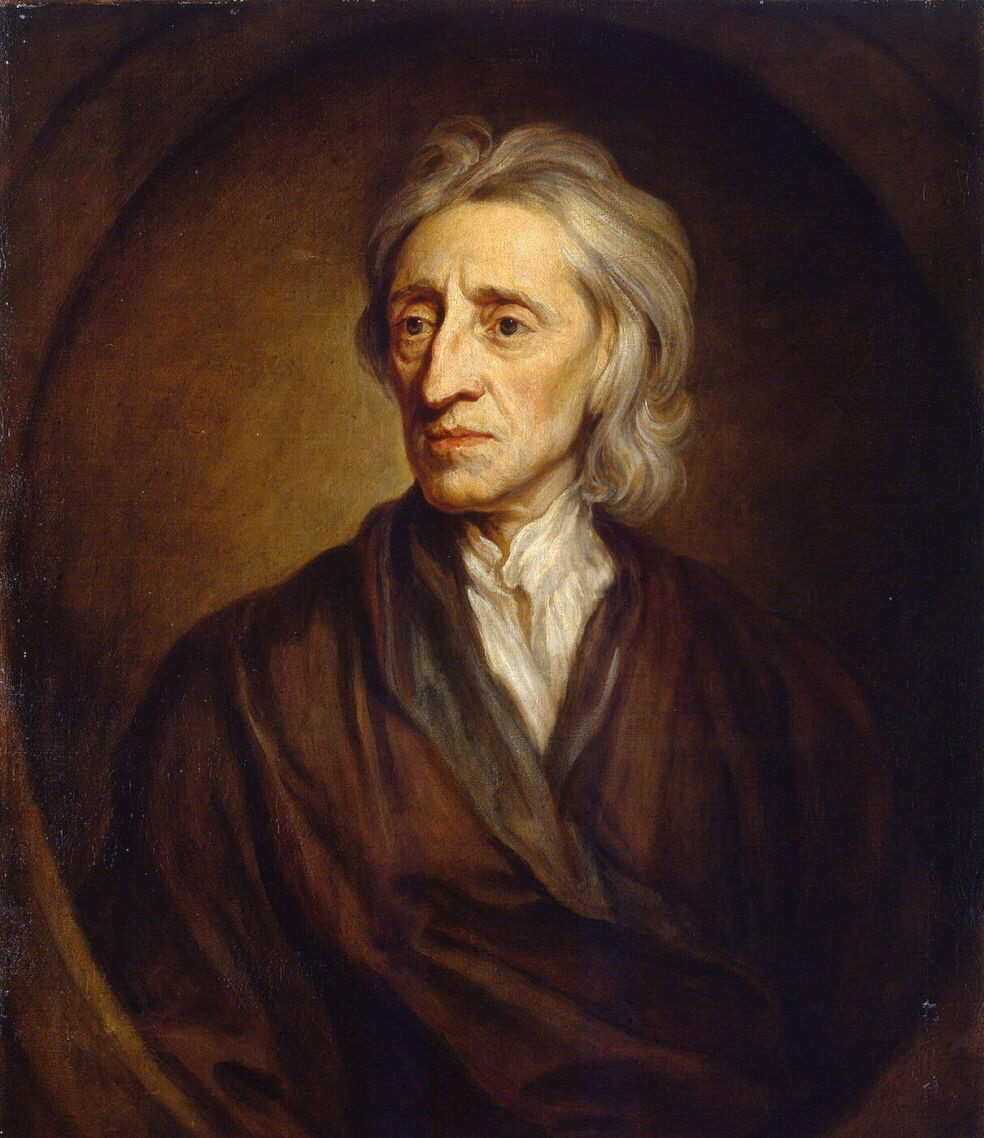Origine: Da Some thoughts concerning reading and study for a gentleman. – John Locke, The Works, vol. 2, An Essay concerning Human Understanding, part 2 and Other Writings (1689).
John Locke frasi celebri
Origine: Da Lettera sulla tolleranza, 1689.
Origine: Saggio sull'intelletto umano, pp. 338-9
Origine: Saggio sull'intelletto umano, p. 346
Origine: Saggio sull'intelletto umano, p. 353
Frasi sulla conoscenza di John Locke
Realtà delle proposizioni esistenziali, Libro IV
Saggio sull'intelletto umano
John Locke Frasi e Citazioni
2013, p. 287 http://books.google.it/books?id=Xl3M9jc-VGAC&pg=PT287
Saggio sull'intelletto umano
“I confini delle specie, là dove gli uomini li stabiliscono, sono fatti solo dagli uomini.”
libro III, cap. 6
Saggio sull'intelletto umano
Origine: Citato in Bertrand Russell, Storia della filosofia occidentale, traduzione di Luca Pavolini, Longanesi, Milano, 1966, p. 800.
libro II
Let us then suppose the mind to be, as we say, white paper, void of all characters, without any ideas:- How comes it to be furnished?
Saggio sull'intelletto umano
Origine: Citato in AA.VV., Il libro della filosofia, traduzione di Daniele Ballarini e Anna Carbone, Gribaudo, 2018, p. 133. ISBN 9788858014165
John Locke: Frasi in inglese
An Essay on Toleration (1667), quoted in Mark Goldie (ed.), Locke: Political Essays (Cambridge University Press, 1997), pp. 151-152.
“Children (nay, and men too) do most by example.”
Sec. 67
Some Thoughts Concerning Education (1693)
Sec. 94
Some Thoughts Concerning Education (1693)
“faith need not be kept with heretics”
Nulla fides servanda cum Hereticis, nisi satis validi sunt ad se defendendos
Journal entry (25 January 1676), quoted in John Lough (ed.), Locke's Travels in France 1675-1679 (Cambridge University Press, 1953), p. 20.
“Preference of vice to virtue, a manifest wrong judgment.”
Book II, Ch. 21, sec. 70
An Essay Concerning Human Understanding (1689)
“But there is only one thing which gathers people into seditious commotion, and that is oppression.”
A Letter Concerning Toleration (1689)
Sec. 70
Some Thoughts Concerning Education (1693)
Sec. 96
Some Thoughts Concerning Education (1693)
Sec. 121
Some Thoughts Concerning Education (1693)
Book IV, Ch. 20, sec. 17
An Essay Concerning Human Understanding (1689)
Second Treatise of Government, Ch. XVIII, sec. 199
Two Treatises of Government (1689)
“He that uses his words loosely and unsteadily will either not be minded or not understood.”
Book III, Ch. 10, sec. 31
An Essay Concerning Human Understanding (1689)
Book IV, Ch. 7, sec. 11
An Essay Concerning Human Understanding (1689)
Sec. 116
Some Thoughts Concerning Education (1693)
Sec. 118
Some Thoughts Concerning Education (1693)
Letter to Edward Clarke (c. April 1690), quoted in James Farr and Clayton Roberts, 'John Locke on the Glorious Revolution: A Rediscovered Document', The Historical Journal, Vol. 28, No. 2 (Jun., 1985), pp. 385-398.
Sec. 206
Some Thoughts Concerning Education (1693)
Sec. 109
Some Thoughts Concerning Education (1693)
“How then shall they have the play-games you allow them, if none must be bought for them?”
I answer, they should make them themselves, or at least endeavour it, and set themselves about it. ...And if you help them where they are at a stand, it will more endear you to them than any chargeable toys that you shall buy for them.
Sec. 130
Some Thoughts Concerning Education (1693)
“Wherever Law ends, Tyranny begins.”
Second Treatise of Government, Sec. 202
Two Treatises of Government (1689)
Origine: An Essay Concerning Human Understanding (1689), Book IV, Ch. 3, sec. 22
Second Treatise of Civil Government, Ch. VII, sec. 93
Two Treatises of Government (1689)
Contesto: For if it be asked what security, what fence is there in such a state against the violence and oppression of this absolute ruler, the very question can scarce be borne. They are ready to tell you that it deserves death only to ask after safety. Betwixt subject and subject, they will grant, there must be measures, laws, and judges for their mutual peace and security. But as for the ruler, he ought to be absolute, and is above all such circumstances; because he has a power to do more hurt and wrong, it is right when he does it. To ask how you may be guarded from or injury on that side, where the strongest hand is to do it, is presently the voice of faction and rebellion. As if when men, quitting the state of Nature, entered into society, they agreed that all of them but one should be under the restraint of laws; but that he should still retain all the liberty of the state of Nature, increased with power, and made licentious by impunity. This is to think that men are so foolish that they take care to avoid what mischiefs may be done them by polecats or foxes, but are content, nay, think it safety, to be devoured by lions.
Attributed to Locke on various quotes sites and on social media, this quotation is a false rendering of "We are all a sort of chameleons, that still take a tincture from things near us: nor is it to be wondered at in children, who better understand what they see, than what they hear" from Some Thoughts Concerning Education (1693).
Misattributed
Letter to Anthony Collins (29 October 1703) http://oll.libertyfund.org/titles/1726#lf0128-09_head_098
